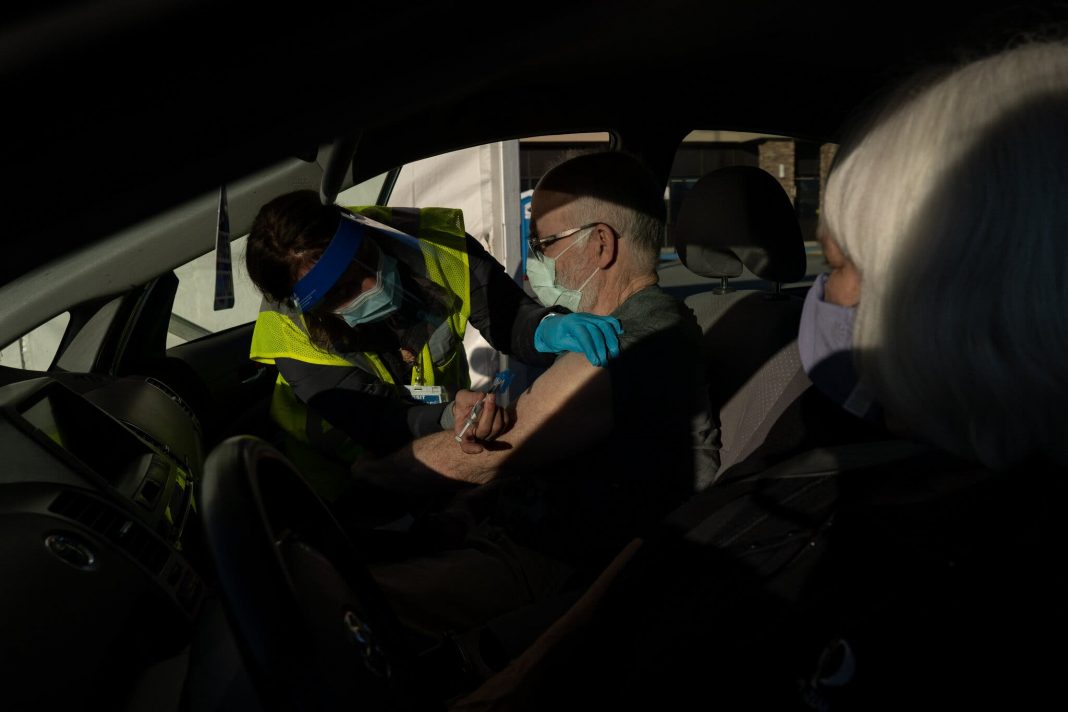In response to an increase in illnesses and an expected increase in holiday travel, the Centers for Disease Control and Prevention (CDC) on Friday recommended that all adults over the age of 18 get booster injections of the coronavirus vaccine.
In making the recommendation, President Biden fulfils his promise made in August to make the additional dosages accessible to all adults. It also puts an end to months of scientific dispute about whether most individuals really required boosters. The injections are already accessible at a number of pharmacies, physicians’ offices, and immunisation facilities around the country.
The Centers for Disease Control and Prevention (CDC) recommended that Americans over the age of 50, as well as those 18 and older living in long-term care institutions, “should” obtain booster injections of the Pfizer-BioNTech or Moderna vaccines, according to the agency. The agency determined that all other people above the age of 18 “may” get booster doses.
Beneficiaries of Johnson & Johnson’s one-dose vaccination were previously allowed to get a booster shot at least two months after receiving the original injection.
An earlier announcement on Friday by the Food and Drug Administration (FDA) permitted booster injections for all adults in the United States over 18. In most cases, however, the Centers for Disease Control and Prevention (CDC) establishes the clinical recommendations that are followed by the medical profession.
An agency panel of scientific advisors supported the increase of eligibility earlier on Friday, and Dr. Rochelle Walensky, the agency’s head, backed the suggestion early in the evening.
Many experts were concerned that additional doses were not required by the vast majority of adults to prevent serious illness and death, and that a push for booster doses could put a strain on global vaccine supplies at a time when many people in poor countries have not yet received their first doses.
Infection rates, on the other hand, are increasing again in the United States and surging over most of Europe. On Thursday, Austria reported a total of more than 14,000 new cases; on Monday, it will go into a statewide lockdown and will enforce the administration of coronavirus vaccinations beginning in February, marking the first time that this has been required in a Western democratic country.
Public health experts in many of these nations, as well as in the United States, see booster injections as a means of bolstering defences against an aggressive adversary and obtaining the upper hand in the epidemic, according to the World Health Organization. In France, for example, booster injections are required for people over the age of 65 who desire to get a health pass that allows them to enter public buildings.
In the United States, the average number of infections has climbed by 33 percent over the previous two weeks, reaching 94,000 every day. CDC’s ruling comes just as Americans prepare to celebrate the holidays with family and friends, events that are likely to exacerbate the trend already underway.
The injections may be beneficial in preventing at least certain infections, especially in the elderly and those suffering from specific medical problems. Many experts, especially those who advise government agencies, are, however, unconvinced that boosters alone will be sufficient to alter the tide of public opinion.
According to the experts, the further vaccinations are unlikely to provide much benefit to individuals under the age of 65, who are already protected against serious sickness and hospitalisation as a result of their original vaccine.
The sudden drive for boosters seems to have had little impact on many Americans. When the Centers for Disease Control and Prevention added depression and other mental diseases to the list of ailments that qualify individuals for an additional vaccination dosage, more than 85 percent of the adult population became eligible.
According to Dr. Celine Gounder, an infectious disease expert at Bellevue Hospital Center, the most effective plan for administering the vaccine would be to provide booster doses to patients of nursing homes and long-term care institutions as soon as possible. These are the adults who are most likely to benefit from the programme.
Americans who have chosen boosters “tend to be of better socioeconomic class and more well educated, as well as having more access to medical care in general,” according to Dr. Gounder’s research. “That’s not necessarily who’s genuinely at danger of serious illness, hospitalisation, or death, and I believe you’ll have a limited influence on public health as a result of your efforts.”
According to Ian Sams, a spokesperson for the Department of Health and Human Services, the Biden administration aims to administer booster injections at long-term care institutions and nursing homes, as well as collaborate with community health centres to reach those who have limited access to health care.
As a result of the administration’s confused rhetoric, experts believe that the low rate of boosters to date may be at least in part explained. In previous guidelines, the Centers for Disease Control and Prevention (C.D.C.) identified certain categories of persons who should get boosters due of their age, employment, or underlying medical concerns.

